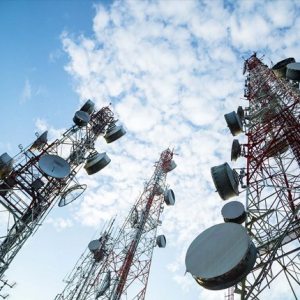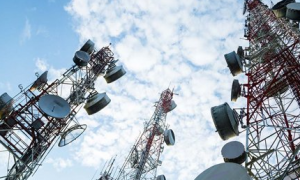
Recent data from the Nigerian Communications Commission (NCC) reveal a troubling trend in Nigeria’s Internet Service Provider (ISP) market, which has experienced a significant decline in subscriber numbers over the past few years. Between Q3 2024 and Q1 2025, over 18,000 subscribers vanished, and 18 companies exited the market. This decline is largely attributed to rising operational costs and a growing preference for more affordable mobile internet options among consumers.
Notably, Spectranet, once a leading fixed broadband provider, recorded a 2.08% decrease in subscribers. Starlink, which has emerged as the largest provider based on coverage, saw a 9% decline, while FibreOne faced the steepest loss, with a 42.4% drop in subscribers.
The number of fixed broadband users in Nigeria fell from 307,946 in Q3 2024 to 289,369 in Q1 2025. This decline underscores the vulnerability of ISPs in a landscape increasingly dominated by mobile internet usage.
The shift towards mobile internet underscores the evolving priorities of Nigerian consumers, who frequently find mobile data more accessible and cost-effective. As one telecom industry executive noted, “Why pay a premium for fibre or satellite when you can buy a few hundred megabytes on your phone for US$0.33?”
The tough economic conditions make mobile internet the go-to choice for many households. In contrast, fixed broadband generally requires higher upfront hardware costs and ongoing monthly fees, which can be a barrier to users in less urban areas.
Despite high hopes for Starlink when it entered Nigeria in early 2023, its presence has not fully delivered the promised connectivity solutions in Nigeria and other African markets, such as Kenya, Rwanda, and South Africa. High hardware costs and hefty monthly fees have made its services unaffordable for most users, compounded by the continent’s ongoing economic challenges.
The struggle for ISPs like Starlink highlights a broader issue facing the telecommunications sector in emerging markets: substantial potential but low affordability. One Starlink retailer, speaking anonymously, remarked, “Many Nigerians are cutting back on their subscriptions,” suggesting a shift in consumer priorities.
As of Q1 2025, Nigeria had 234 licensed ISPs, with only 127 having active users. This represents a decline from 252 licensed ISPs in Q4 2023, of which only 106 were active. This trend indicates a growing struggle for smaller, local providers to compete with larger telecommunications companies and absorb the rising operational costs.
According to Diseye Isoun, CEO of Content Oasis, the implications of this decline go beyond mere numbers. “ISPs are seen as peripheral, yet essential to the broadband ecosystem—especially for schools, hospitals, and local businesses,” he explained. The issue lies in the lack of policy frameworks that support ISPs in providing these critical services.
Isoun supports a hybrid approach, drawing inspiration from Brazil’s Telebras. This state-supported initiative funds broadband access in educational and healthcare institutions through partnerships with private ISPs. This model ensures minimum connectivity access where it is most needed, rather than relying solely on market forces.
While mobile networks dominate the current landscape, ISPs remain vital for Nigeria’s future digital infrastructure. They are necessary for delivering stable, high-capacity last-mile connectivity- essential for universities, hospitals, industrial zones, and tech centres—where mobile data alone is insufficient.
“You can’t resolve connectivity issues in a university with just mobile internet,” Isoun stated. “You need durable infrastructure, guaranteed service levels, and local support when issues arise.”
Unfortunately, Nigeria lacks a comprehensive policy framework that assists ISPs in delivering these essential services. Agencies like the Universal Service Provision Fund (USPF) under the NCC are struggling to meet the increasing demand due to limited funding and execution capacity.
“There is no organised effort to ensure connectivity in critical sectors,” Isoun noted. “Redirecting a part of cash-transfer programs or savings from subsidies to fund broadband access in schools and health facilities through vetted ISPs could make a significant difference.”
The continuing decline of ISPs and an overreliance on mobile networks risk creating an unbalanced market and widening developmental gaps. While mobile broadband offers some benefits, it is essential to acknowledge the significant role of fixed broadband providers in establishing a resilient and inclusive digital infrastructure.


















